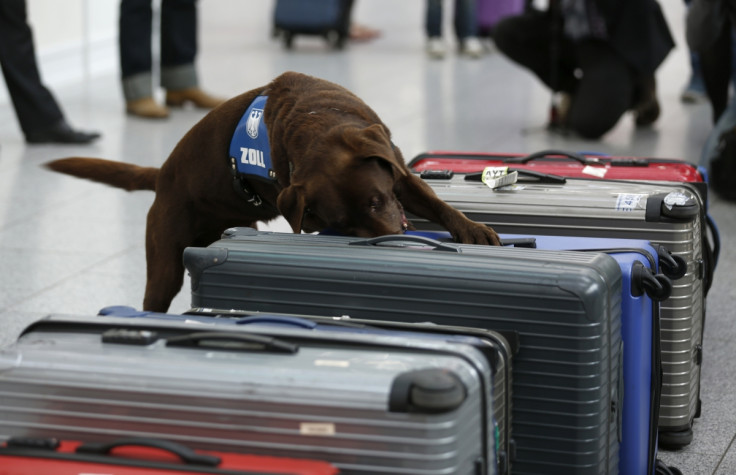Manchester airport: Sniffer dogs detect sausages but not drugs

A detector dog unit used as part of security measures at Manchester airport is under fire after failing to detect Class A drugs. A review of the security arrangements in the UK's third largest airport revealed that employing the dogs has not been a viable move in terms of return on investment.
A report found that the six sniffer dogs in the Manchester airport kennel unit have not been able to detect any Class A drugs between November 2014 and June 2015. However, the canines did help in the seizure of more than 46,000 cigarettes, 60kg of tobacco, 181kg of illegal meat and £28,000 ($39,624) cash over the same period, according to the report.
The report pointed out that a dog trained to sniff out smuggled animal products made "accurate detections" but the seizures made were mostly "small amounts of cheese or sausages, wrongly brought back by returning British holidaymakers and posing minimal risk to UK public health, whereas it would be of more strategic value to target flights where the dog might detect 'bushmeat'."
Citing the data provided by Border Force that showed the detector dog unit has made no Class A drugs detections like heroin and cocaine, which were assessed as "very high" priority within both air passengers and freight, the report noted that the dogs were failing to deliver "effectively against 'Control Strategy' priorities".
"The deterrent effect of the detection dogs was difficult to measure, but seizures alone represented a low return on investment, given £1.25m spent on new kennels and the costs of operating the unit," the report read.
The report cited a senior manager who reportedly admitted that there was "a lack of innovation in the use of the dogs" in the unit, but assured that a new management structure was being put into place to review their deployment.
Pointing out that the class A drug detections at the airport "were not at the level that might be expected," it was recommended that the home office should consider "whether the deployment of staff and dogs in the customs channels has become predictable and therefore less effective against experienced smugglers" and also to ensure "the detector dogs are targeted against the commodities identified as high priority in the Border Force Control Strategy."
In response to the report findings, a Home Office spokesman reportedly said they agree that more improvements are required at the airport and accept all the recommendations made in the report.
"We welcome the report's findings and accept all the recommendations — many of which, including a new recruitment and training programme, are already being implemented," the spokesman was quoted as saying by BBC.
A Manchester Airport spokesman reportedly said their staff "work extremely closely" with Border Force and "support their work to address the issues raised in this report".
© Copyright IBTimes 2024. All rights reserved.





